Uncategorized
http://dollarstorecrafts.com/2018/02/tutorial-toy-animal-photo-holders/
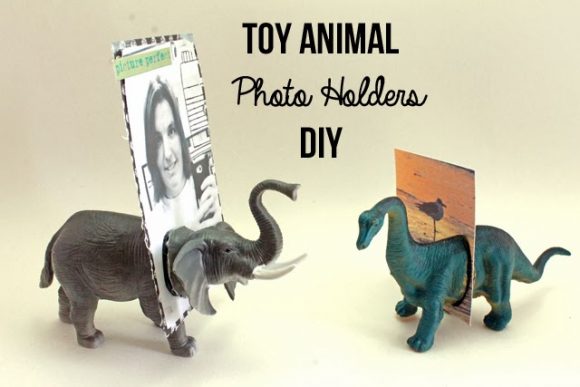
Take these elephant and dinosaur toys from the dollar store and use them to make some fun photo holders to display on your desk, shelf or playroom. Add a dash of whimsy to any room. You’ll be surprised at the way these clever photo holders are constructed, so check out how easy it is to make this dinosaur photo frame craft!
Hi there! Katie here today from Punk Projects! I love using inexpensive items in my crafting. If it involves upcycling, I’m all for it! I took a trip to the Dollar Tree to get some inspiration for today’s post and I found these awesome plastic toys.
Supplies Needed:
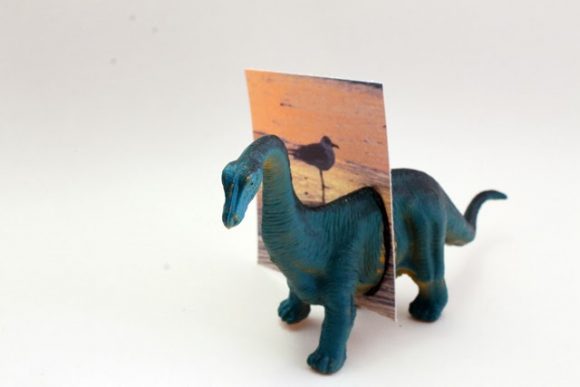
Project estimate:
- Toy animals, $1
- Flat magnets, on hand or $1
- Super glue, on hand or $1
- Craft knife or box cutter, on hand
Total: $1 and up
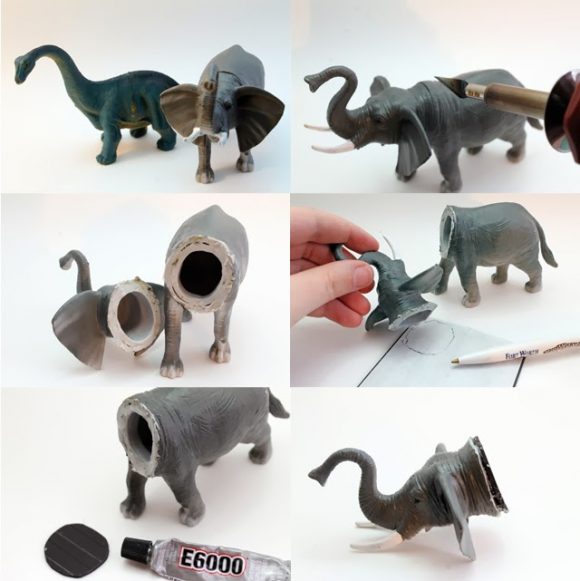
1. Decide on your animals. I loved the brontosaurus, and the elephant is for a friend.
2. Use a craft knife to cut through the animal. Most plastic animals have a seam where they were put together, cut on that seam and it will be easier. Just don’t cut yourself.
3. Once you have your animal cut in half, trace around him onto a magnet.
4. Cut out 2 magnets for each animal.
5. Go around the cut edge of your animal with super glue and glue your magnet to it.
6. Let it dry completely.
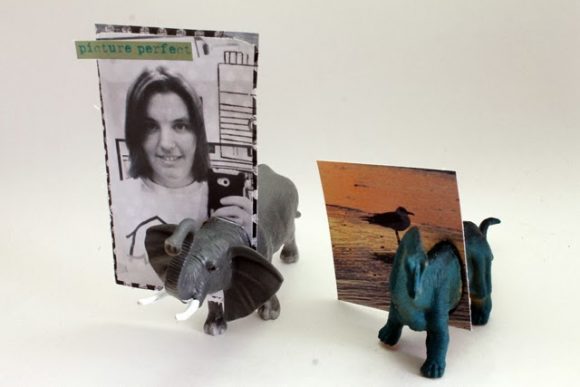
Once your magnets have been glued on and dried, slide a photo in between the animal piece and stand him back up! I love these little dinosaur photo frames!
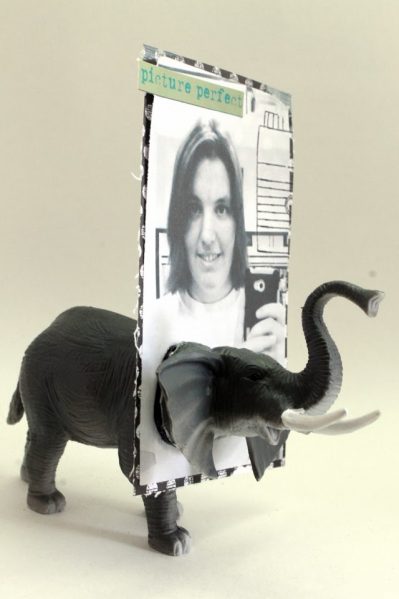
What do you think? Would you make a dinosaur photo frame craft for yourself, or for a friend?
Pin the Dinosaur Photo Frame Craft:
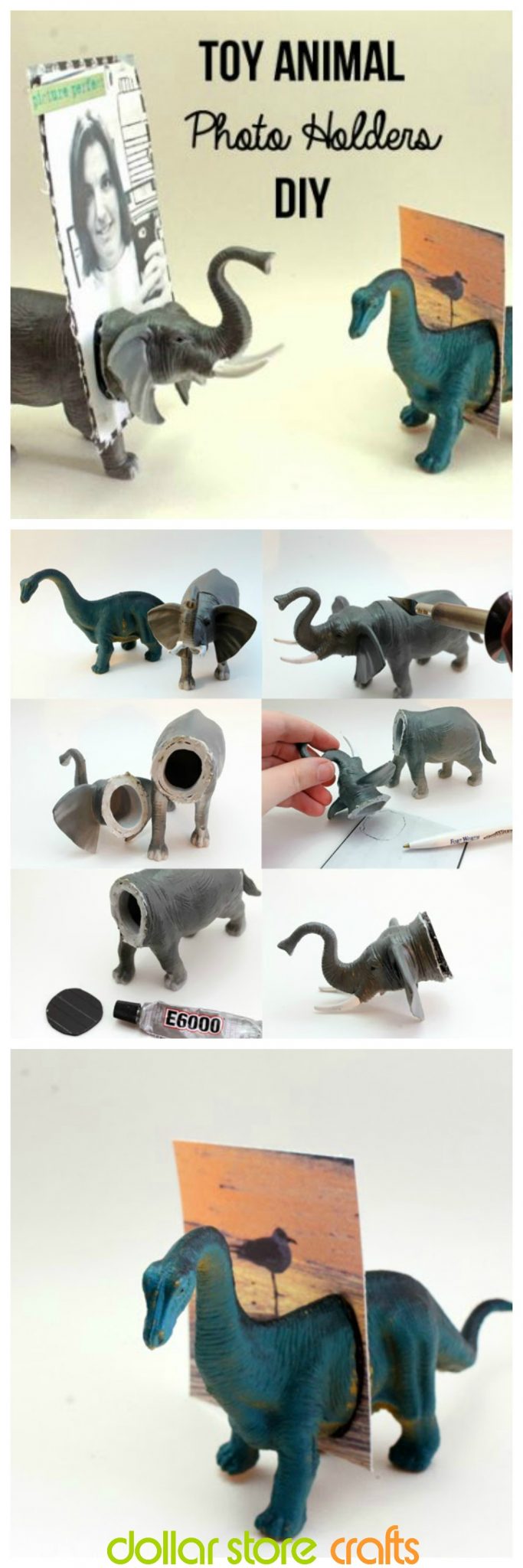
 I’m Katie, a lover of anything artsy. I doodle on everything I can get my hands on, however my favorite projects are scrapbooking, restyled/upcycled crafts and sewing. I write my blog, Punk Projects, where I post tutorials, inspiration and other fun things as well as designing custom shoes in my etsy shop.
I’m Katie, a lover of anything artsy. I doodle on everything I can get my hands on, however my favorite projects are scrapbooking, restyled/upcycled crafts and sewing. I write my blog, Punk Projects, where I post tutorials, inspiration and other fun things as well as designing custom shoes in my etsy shop.
You can also find me here on Facebook, Twitter and Pinterest.
The post Tutorial: Toy Animal Photo Holders appeared first on Dollar Store Crafts.


